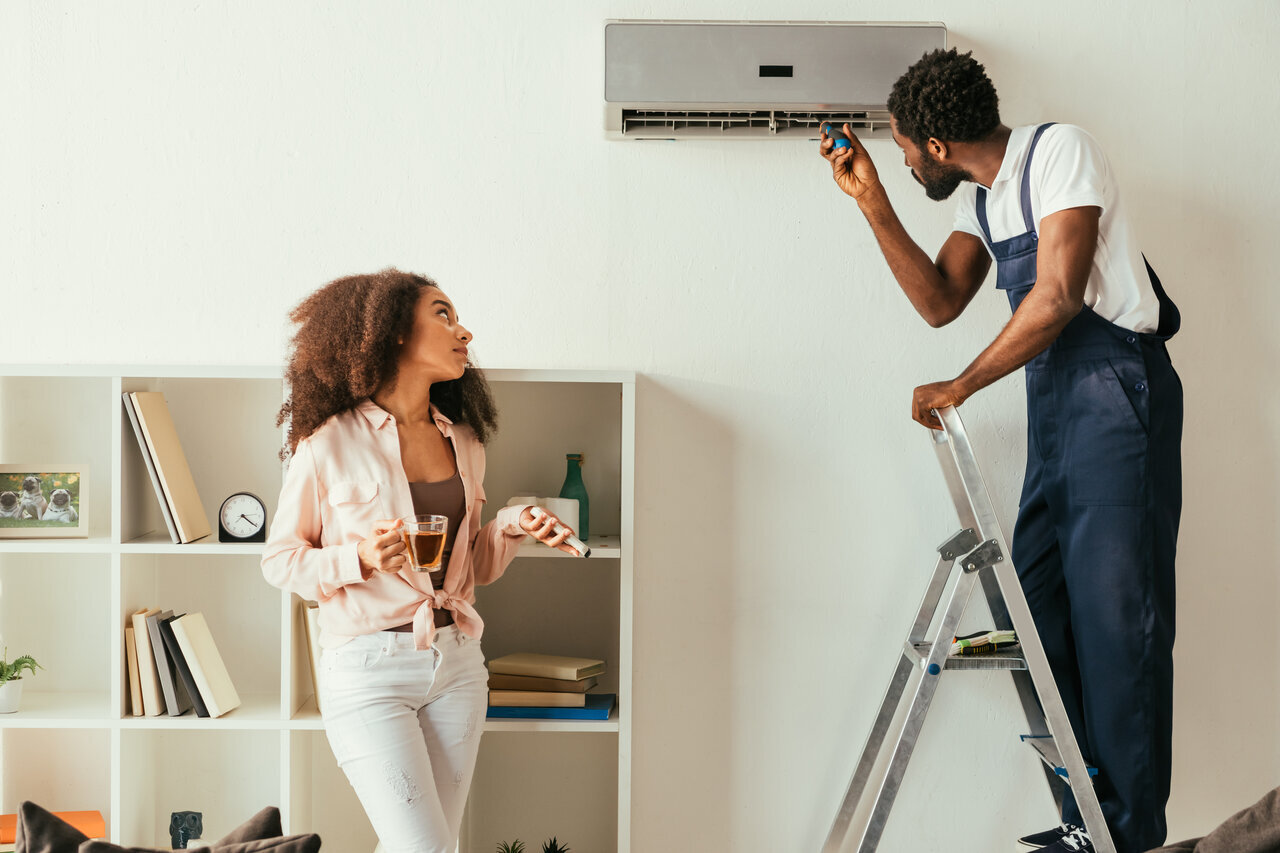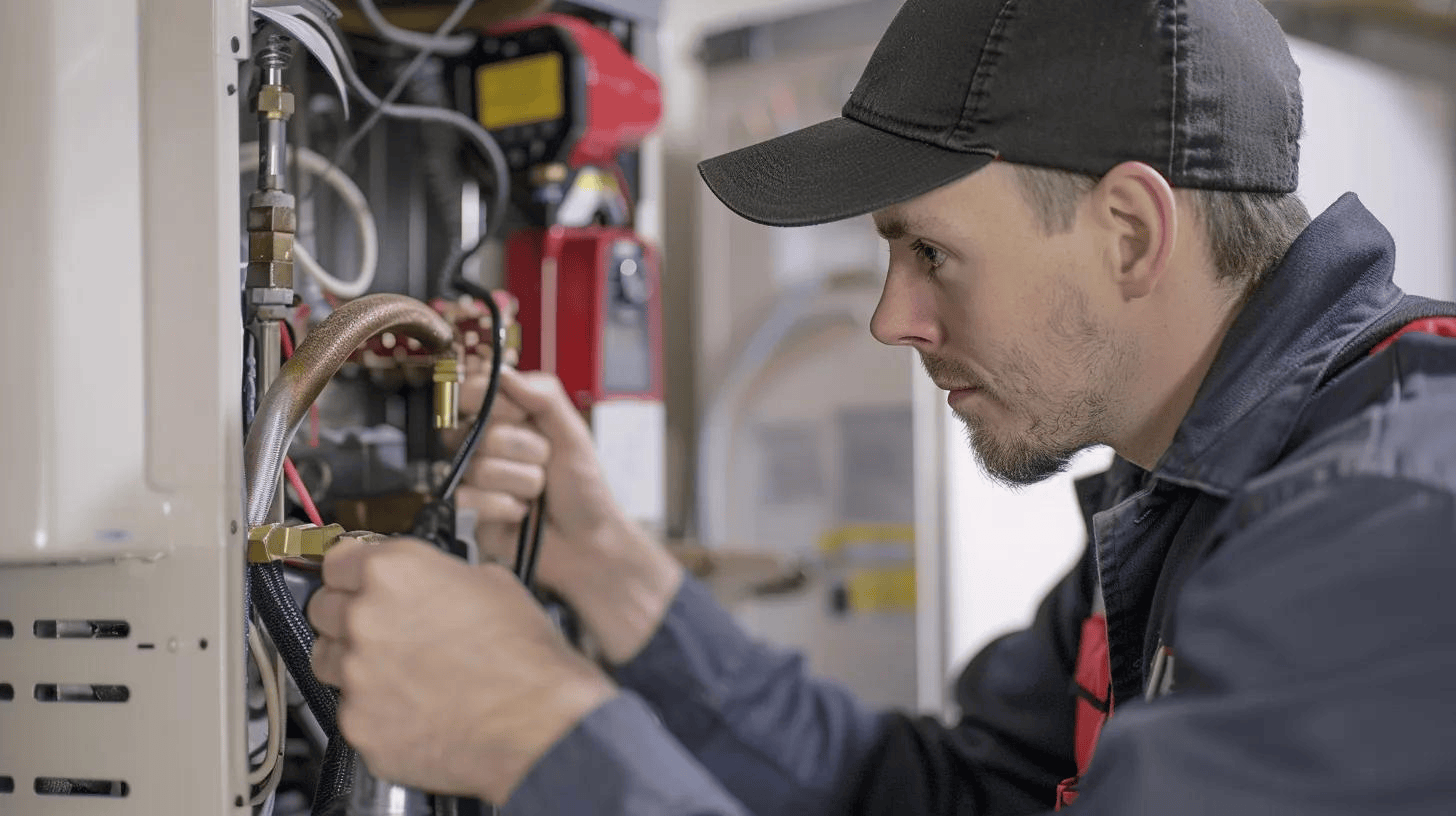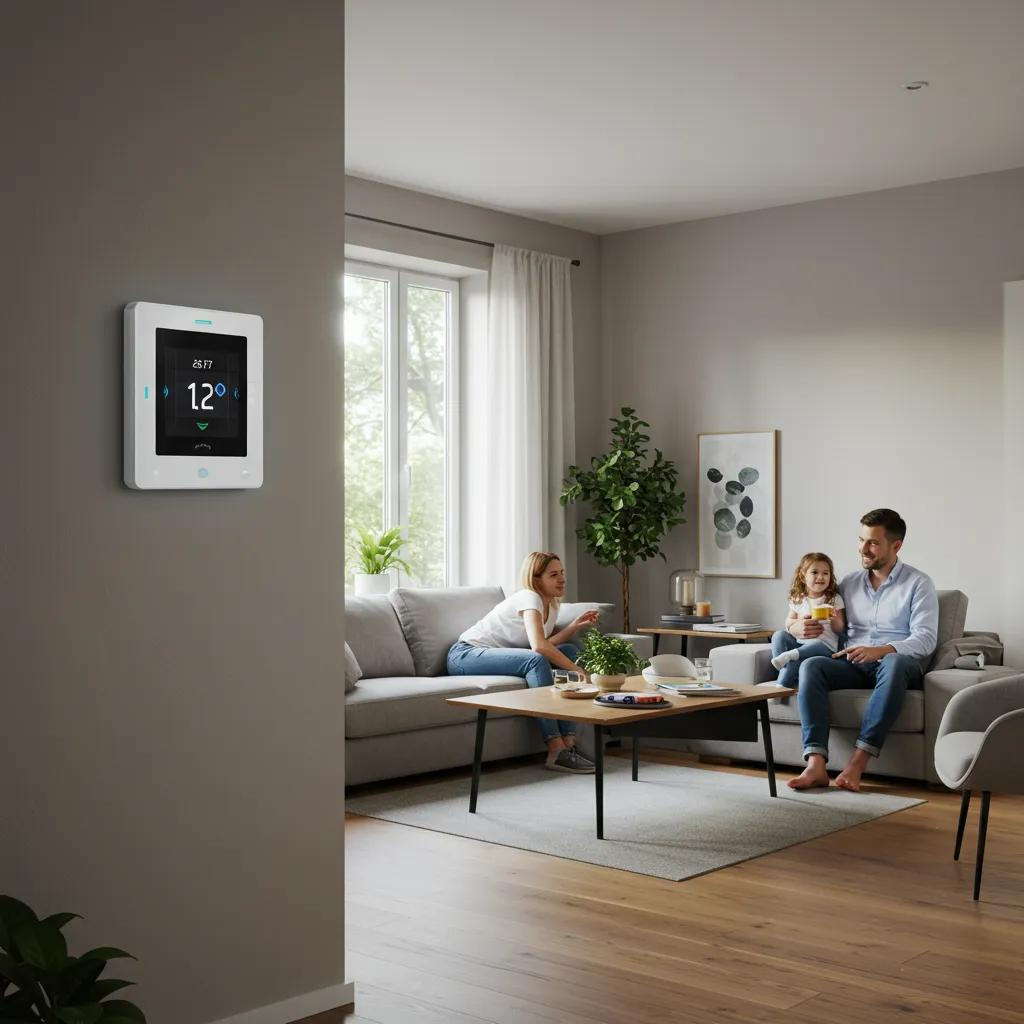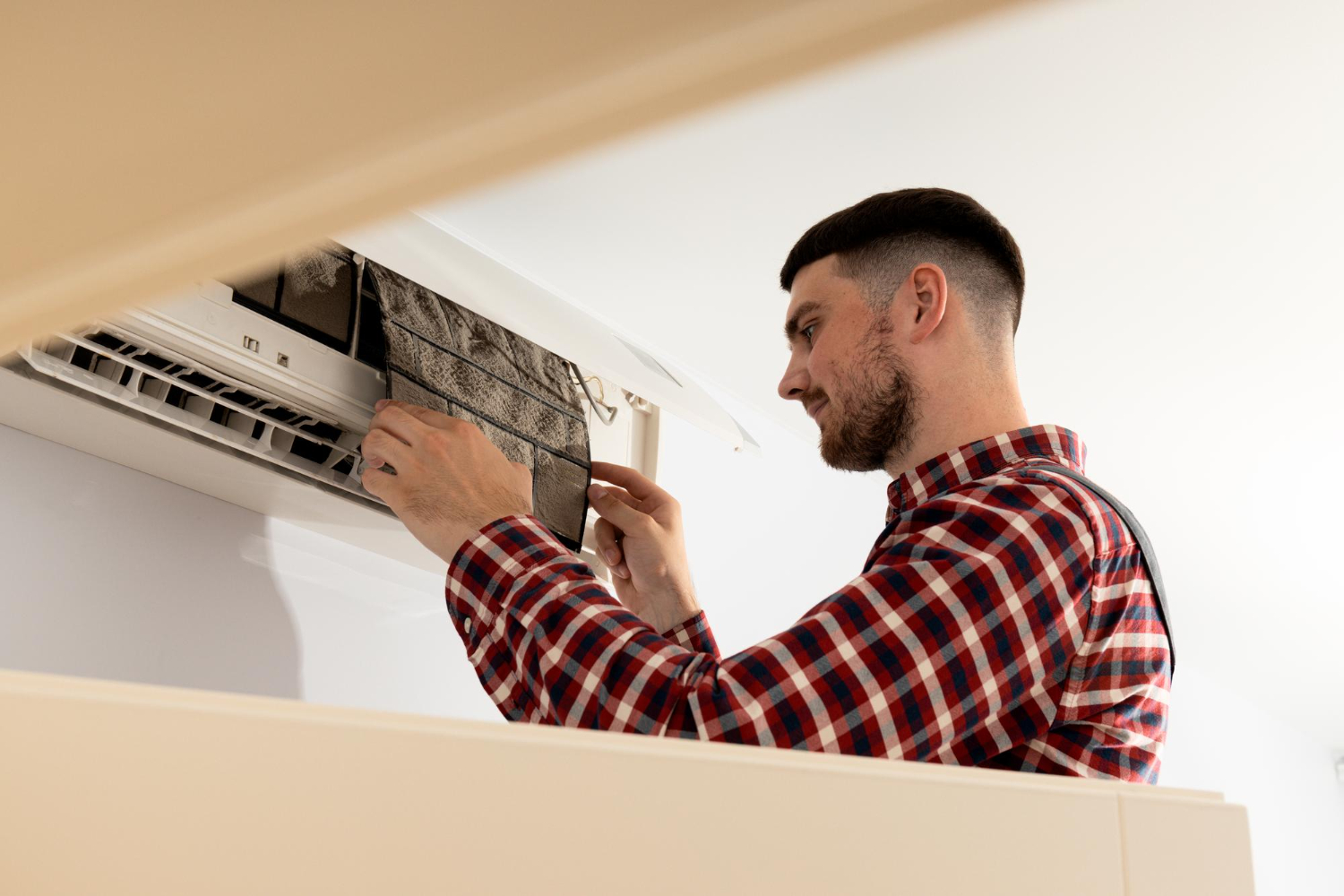If your AC is leaking water inside your home during a hot Atascadero summer, you're not alone. It's a common problem that can turn from a small inconvenience to a serious issue quickly. A leak may show up as a wet spot on the ceiling, damp flooring near the air handler, or unexplained moisture around your vents. Left unchecked, water leaks from your air conditioner can cause damage to walls, floors, and even parts of the unit itself.
Homeowners often assume a little moisture is harmless, especially on humid days. But with AC equipment, any water where it shouldn't be is a sign that something has gone wrong. Understanding the cause of the leak and knowing what to do next helps reduce the risk of further damage. If you live in Atascadero and spot signs of a leak, acting quickly is the best move. Getting a handle on it starts with knowing what to look for.
Identifying the Source of the Leak
The most common places where water can leak from an AC system are the drain line, evaporator coil, and drain pan. These parts are responsible for collecting and removing moisture produced during the cooling process. If any of them stop working properly, water accumulates and eventually finds its way outside the system.
To get an idea of where the leak is coming from, start with the following steps:
1. Check around the indoor air handler. Look near the base of the unit or along the walls where it's installed.
2. Look at the drain pan under the unit. If it's cracked or overflowing, that’s likely the source.
3. Inspect the nearby drain line. If it's clogged, the water has nowhere to go.
4. Feel the surrounding air. If it’s noticeably humid or stuffy, the unit may not be removing moisture effectively.
Here are some signs that can help confirm where the leak may be starting:
- Your AC suddenly stops cooling, and water buildup appears at the same time.
- You notice a mildew smell coming from vents or near the unit.
- A water stain forms on the ceiling below your attic or upper-floor AC components.
If you're unsure or can't access parts of the system without disassembling anything, it's a good sign to stop and contact experienced technicians. Taking apart components on your own often causes more harm than good.
Immediate Steps to Manage the Leak
While you wait for help to arrive, there are a few hands-on things you can do to reduce water damage. Acting quickly can keep the issue contained and protect your home from unexpected repair costs.
Try the following steps:
- Turn the AC system off to prevent more water from building up.
- Place towels or buckets under the drip to catch any water.
- Soak up pooled water around the unit with dry cloths or a wet vacuum.
- Clear the space around the unit to allow airflow and easy access for service.
Avoid the urge to open up panels or try flushing the line with random household tools. AC systems contain electrical components and pressurized refrigerant lines, both of which can create safety hazards without the proper training.
One common mistake people in Atascadero make is assuming warm weather leaks are caused by external humidity or condensation. While some warmth-related moisture is normal, any puddle or steady drip should always be taken seriously. A homeowner once left it for two weeks, thinking it would dry out on its own. By the time repairs were made, the floor under the unit had started to buckle from water exposure.
Drips and leaks may seem small at first, but the added moisture can quietly create expensive issues. The faster the system is shut down and the area dried off, the easier the repair process will be.
Common Causes of AC Leaks
AC leaks usually don’t happen by accident. In most cases, something inside the system has stopped working the way it should. One issue often found in Atascadero homes is a clogged condensate drain line. This is the tube responsible for carrying moisture away from your system. When dirt, dust, or algae build up inside, the water backs up and spills out near the system.
Another regular culprit is a frozen evaporator coil. This happens when there are low refrigerant levels or poor airflow. When the coil ices over, the ice eventually melts, and the water can’t drain properly. That water ends up leaking in areas where it shouldn’t be. Poor installation can also cause leaks down the line. If parts aren’t positioned correctly, or if drainage is angled the wrong way, it can result in the water failing to exit through the right pathways.
Here are three common reasons your AC might be leaking:
- Clogged condensate drain line: Traps water in the system and causes overflow.
- Frozen evaporator coil: Melts after freezing and releases excess water.
- Damaged or rusted drain pan: Old pans crack over time and stop doing their job.
Each of these points to a part of the system not doing its job. The tricky thing is that they’re often hidden inside the housing of the unit, making them hard to recognize without taking the system apart. What looks like a simple drip on the surface can be something much bigger behind the scenes.
Why Professional Repair Is the Safer Option
When a water leak happens, the temptation to fix it yourself can be strong—especially if the source seems easy to reach. But modern AC systems have electrical wiring, refrigerant lines, and tightly sealed components that can be damaged with even small mistakes. The safest move is to schedule an inspection with trained professionals who have the right tools and know-how.
Here’s what sets professional service apart:
- They check the whole system, not just where the water shows up.
- They know how to spot early signs of breakdown before damage spreads.
- They follow safety steps for dealing with power, refrigerants, and sealed components.
- They offer repair options that actually solve the root cause, not just the symptoms.
During a service visit, our technicians start by turning off the power, checking for obvious signs of clogging or damage, and then working slowly through the drainage system and coil housing. If parts need replacing, we provide solutions that fit your setup. And if the unit just needs a deep clean or flush, we handle that too.
Avoiding a leak requires more than just wiping up the water. It means addressing the reason the water showed up at all. That’s where a trained eye makes the difference. A delay in calling for help may extend the damage and lead to higher repair costs.
Tips to Keep Leaks from Coming Back
Once your AC is working properly again, there are a few steps you can take to help avoid another leak. Regular attention to your system helps you catch small problems before they turn into bigger ones. Homeowners in Atascadero can benefit from a mix of personal checks and scheduled service.
- Clear debris around the outdoor unit so it gets proper airflow.
- Replace or clean air filters once a month during high-use periods.
- Check for moisture around the indoor unit at least once a week.
- Make sure furniture and storage boxes aren’t blocking vents or return air ducts.
- Schedule a checkup with our technicians before and after the peak cooling season.
It’s easy to forget about your AC until something goes wrong, but that’s where small habits come in. Just like cleaning gutters or checking smoke alarms, AC health can be baked into your routine. One local homeowner compared it to checking a car’s oil. It may not seem important until the engine quits. The same thinking applies to your cooling system.
Keeping Your Atascadero Home Cool and Dry
A leaking AC isn’t just annoying. It’s a sign that something inside the system isn’t working as it should. Whether it's a clogged drain, a frozen coil, or a worn-out part, those issues can cause more than water leaks if ignored. Addressing the problem right away helps prevent long-term damage and keeps your home environment comfortable and safe.
Homeowners in Atascadero rely on their AC units to get through the hottest parts of the year. A dependable system makes a big difference when temperatures climb. If your AC is leaking water, don’t let it slide. Keeping your equipment in check and acting fast when you spot a problem makes all the difference in performance, home comfort, and repair costs down the road.
When water begins pooling near your AC, it's time to act quickly to protect your home from further damage. At Straightline Heating and Cooling, our professionals are ready to inspect your system and address any underlying issues before they worsen. Consider scheduling AC repair in Atascadero so that any hidden problems are dealt with promptly. For a quick estimate or to book a service visit, please contact us today.


HVAC Financing Available!
Get 0% Financing for 12 Months with Deferred Interest! Enjoy no payments and no interest on select plans.





Customer Testimonials







